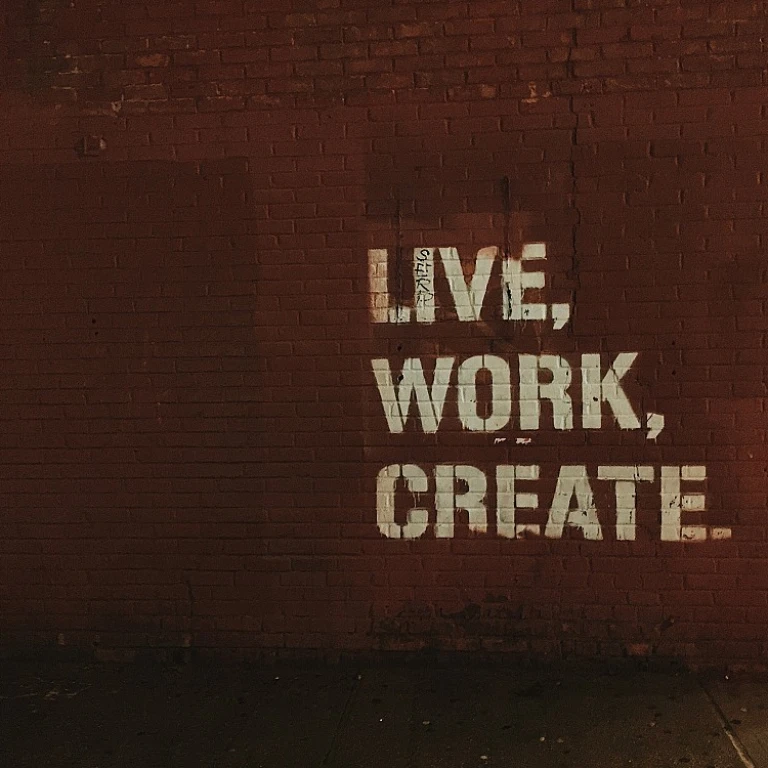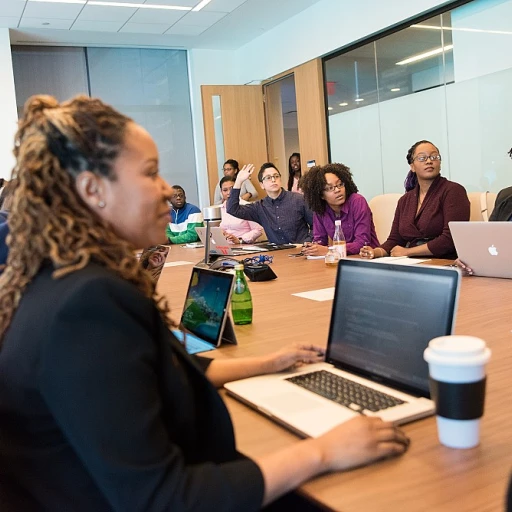The Role of AI in Modern Recruitment
Embracing AI in Recruitment Processes
Artificial intelligence (AI) has become a formidable ally for recruiters in the quest to identify top talent. By harnessing predictive analytics and machine learning, recruitment has transformed from a labor-intensive task into a data-driven endeavor. The infusion of AI in the hiring process facilitates a remarkable enhancement in candidate screening, significantly reducing the time human recruiters spend sifting through resumes.
Through AI-driven applicant tracking systems, hiring managers can analyze a wealth of data from job seekers, pinpointing potential candidates who meet the precise requirements outlined in job descriptions. This technological advancement ensures a more efficient recruitment process by automating administrative tasks, thus allowing hiring managers to focus on refining the recruitment strategies that shape the organization's talent acquisition goals.
AI Tools and Their Impact on Candidate Experience
AI-powered tools have a profound impact on the candidate experience by streamlining the recruiting process and ensuring timely communication. Smart chatbots and virtual assistants are deployed to engage with candidates on social media platforms and job boards, providing real-time responses to frequently asked questions about the recruitment process.
These AI-enabled tools enhance the experience for job seekers by making information-gathering more efficient and generating personalized content that aligns with the potential candidates' professional profiles. Such innovations signify a shift toward a candidate-centric approach in recruitment, where personal interactions are balanced with technology-driven efficiency.
Social Media as a Recruitment Powerhouse
The Influence of Social Media in Attracting Top Talent
In today's digital age, social media has become a vital tool in the recruitment process, transforming how companies connect with potential candidates. Platforms like LinkedIn, Twitter, and Facebook have evolved beyond mere networking sites; they are now powerful recruitment tools that help organizations tap into a wider pool of talent. By leveraging social media, recruiters can engage with job seekers in real-time, providing a more dynamic and interactive candidate experience.
Engaging Candidates Through Authentic Content
Creating engaging and authentic content is crucial for attracting top talent. Companies that effectively utilize social media platforms can showcase their culture, values, and work environment through compelling content. This not only helps in attracting potential candidates but also enhances employer branding. Sharing employee testimonials, behind-the-scenes videos, and day-in-the-life posts can give job seekers a genuine insight into the company, making them more likely to apply.
Data-Driven Recruitment Strategies
Social media platforms provide a wealth of data that can be harnessed to refine recruitment strategies. Recruiters can analyze engagement metrics, candidate demographics, and interaction patterns to tailor their approach. This data-driven method allows hiring managers to make informed decisions, optimizing the recruitment process and improving candidate screening. Predictive analytics can further enhance this process by identifying trends and predicting candidate success, ultimately leading to more effective talent acquisition.
Challenges in Social Media Recruitment
While social media offers numerous advantages, it also presents challenges that recruiters must navigate. Maintaining a consistent and authentic online presence requires time and resources. Moreover, the fast-paced nature of social media can make it difficult to keep up with the latest trends and technologies. Recruiters must balance the need for engaging content with the ethical considerations of privacy and data protection, ensuring that their recruitment strategies are both effective and responsible.
Integrating AI and Social Media for Enhanced Employer Branding
Merging Tech and Social Engagement for Brand Building
In the evolving landscape of recruitment, merging artificial intelligence and social media with an organization's employer branding strategy is fast becoming pivotal to staying competitive. Integrating these components doesn't merely enhance the recruitment process but aligns seamlessly with candidate experience, opening doors for acquiring top talent efficiently. With data-driven approaches, predictive analytics and machine learning tools can revolutionize how employers approach talent acquisition. These AI technologies enable recruiters to tailor job descriptions and candidate screening, pinpointing the right individuals from a vast pool on social media platforms. As a result, hiring managers gain valuable insights into candidates' personalities, skills, and experiences, all while saving time typically consumed in the traditional recruitment process. Social media, meanwhile, acts as a robust recruiting tool, leveraging platforms to publish content that authentically showcases company culture and values. This innovative blend of AI and social media not only enhances the employer brand but also draws in potential candidates by offering them a glimpse into what it means to be part of that organization. Furthermore, media recruitment efforts can be bolstered by understanding data through recruitment dashboards. These insights provide hiring managers with the knowledge required to make informed hiring decisions, refine processes, and enhance candidate experience, ultimately streamlining the journey from job seekers' initial interaction to offer acceptance. This integration is not without its challenges. AI and media convergence in hiring strategies demand a thoughtful approach to ethical considerations, as recruiters strive to maintain human elements within the tech-driven landscape. Nonetheless, embracing these advancements in recruitment and employer branding can propel an organization towards long-term success. For those looking to dive deeper into optimizing these recruitment strategies, exploring the most common campus recruiting software is a great starting point. To successfully navigate future recruitment, organizations must continue exploring novel technology integrations that emphasize both efficiency and authenticity in their recruitment efforts.Challenges and Ethical Considerations
Addressing Potential Challenges of AI and Social Media in Recruitment
While artificial intelligence and social media hold transformative potential in recruitment, they also bring a set of unique challenges and ethical considerations to the forefront. These challenges arise from technology’s rapid integration into recruitment processes, and they include ensuring fairness in candidate screening, the potential for biased data-driven decisions, and maintaining human touch in an increasingly automated world.
Fairness and Bias in AI-Driven Hiring
One of the primary concerns with using AI in recruitment is the risk of bias in candidate screening. AI systems learn from existing data, and if this data reflects societal biases, these can be perpetuated in the hiring process. As such, it is crucial for hiring managers and recruiters to regularly audit AI tools and ensure diversity in the data used for training algorithms. This can help in minimizing any unconscious bias that might influence hiring decisions.
Maintaining the Human Element
Despite the efficiency AI provides, the human element of recruitment remains irreplaceable. Candidates still value personal interactions, and a data-driven process must not overlook this. Recruiters should strive to integrate AI tools without sacrificing human interaction, ensuring that talent acquisition remains a people-centered activity.
Ethical Use of Social Media Platforms
Social media is a powerful tool for connecting with potential candidates, yet it also poses ethical challenges. Employers need to handle candidate data collected from social media responsibly and transparently. It's essential to respect candidate privacy and ensure that any information gathered is used ethically within the recruitment process.
Future-Proofing Recruitment Strategies
To effectively future-proof recruitment strategies, organizations should prioritize continuous learning and adaptability. Leveraging machine learning and predictive analytics can help recruiters anticipate changes in talent acquisition trends and adapt their strategies accordingly. This not only enhances employer branding but also ensures a smoother recruiting process tailored to future recruitment needs.
Case Studies: Success Stories in AI and Social Media Recruiting
Illustrative Instances of AI and Social Media Enhancing Recruitment Success
Organizations across the globe are increasingly adopting AI-driven tools and social media platforms to redefine their recruitment strategies and enhance employer branding. Through careful examination of multiple case studies, one can discern distinct patterns and insights.
Several enterprises have successfully integrated AI technologies to streamline their candidate screening process. These systems, powered by sophisticated algorithms, facilitate a better understanding of potential candidates, assisting hiring managers in making data-driven hiring decisions. By analyzing large volumes of data, AI technology significantly enhances the efficiency of the recruitment process, ultimately saving time and resources.
Furthermore, many companies have leveraged social media channels to tap into a broad spectrum of job seekers and attract top talent. By effectively utilizing these media platforms, recruiters can target specific content and job descriptions to engage more personally with candidates. Such a tailored approach helps in building a positive candidate experience, consequently strengthening employer branding.
In addition, predictive analytics have emerged as pivotal in identifying and predicting the future recruitment needs of an organization. By applying machine learning algorithms, businesses can predict candidate success, thereby enhancing the quality of hires and optimizing the overall recruiting process.
These successes underscore the importance of harnessing the capabilities of AI and social media for talent acquisition. As organizations continue to evolve, the amalgamation of technology and social strategies in their recruiting efforts promises to shape future trends in employer branding.
Future Trends in Employer Branding
Embracing Data-Driven Recruitment
The future of employer branding is increasingly intertwined with data-driven recruitment strategies. As companies continue to leverage predictive analytics, the hiring process becomes more streamlined and efficient. By analyzing data from past recruitment processes, organizations can identify patterns and predict the success of future candidates. This approach not only saves time but also enhances the quality of hires by focusing on top talent that aligns with company values and goals.
Personalized Candidate Experiences
With the integration of artificial intelligence, the recruitment process is becoming more personalized. AI-driven tools can tailor job descriptions and candidate screening processes to match the preferences and skills of potential candidates. This personalized approach ensures that job seekers have a positive experience, which is crucial for maintaining a strong employer brand. By focusing on individual candidate experiences, companies can attract and retain talent more effectively.
Leveraging Social Media Platforms
Social media continues to be a powerful tool for employer branding. Companies are increasingly using media platforms to showcase their culture and values, reaching a wider audience of potential candidates. By sharing authentic content and engaging with followers, organizations can build a strong online presence that resonates with job seekers. This strategy not only attracts talent but also fosters a sense of community and belonging among current employees.
Integrating Human Touch with Technology
While technology plays a significant role in modern recruitment, the human element remains essential. Hiring managers and recruiters must balance the use of technology with personal interactions to ensure a holistic recruitment experience. By combining AI tools with human insights, companies can make informed hiring decisions that reflect both data and human judgment. This integration is key to building a robust employer brand that appeals to diverse talent pools.
Continuous Adaptation and Learning
As the recruitment landscape evolves, companies must remain adaptable and open to new strategies. Continuous learning and adaptation are crucial for staying ahead in the competitive job market. By keeping abreast of emerging trends and technologies, organizations can refine their employer branding strategies to meet the changing needs of job seekers. This proactive approach ensures long-term success in attracting and retaining the best talent.





